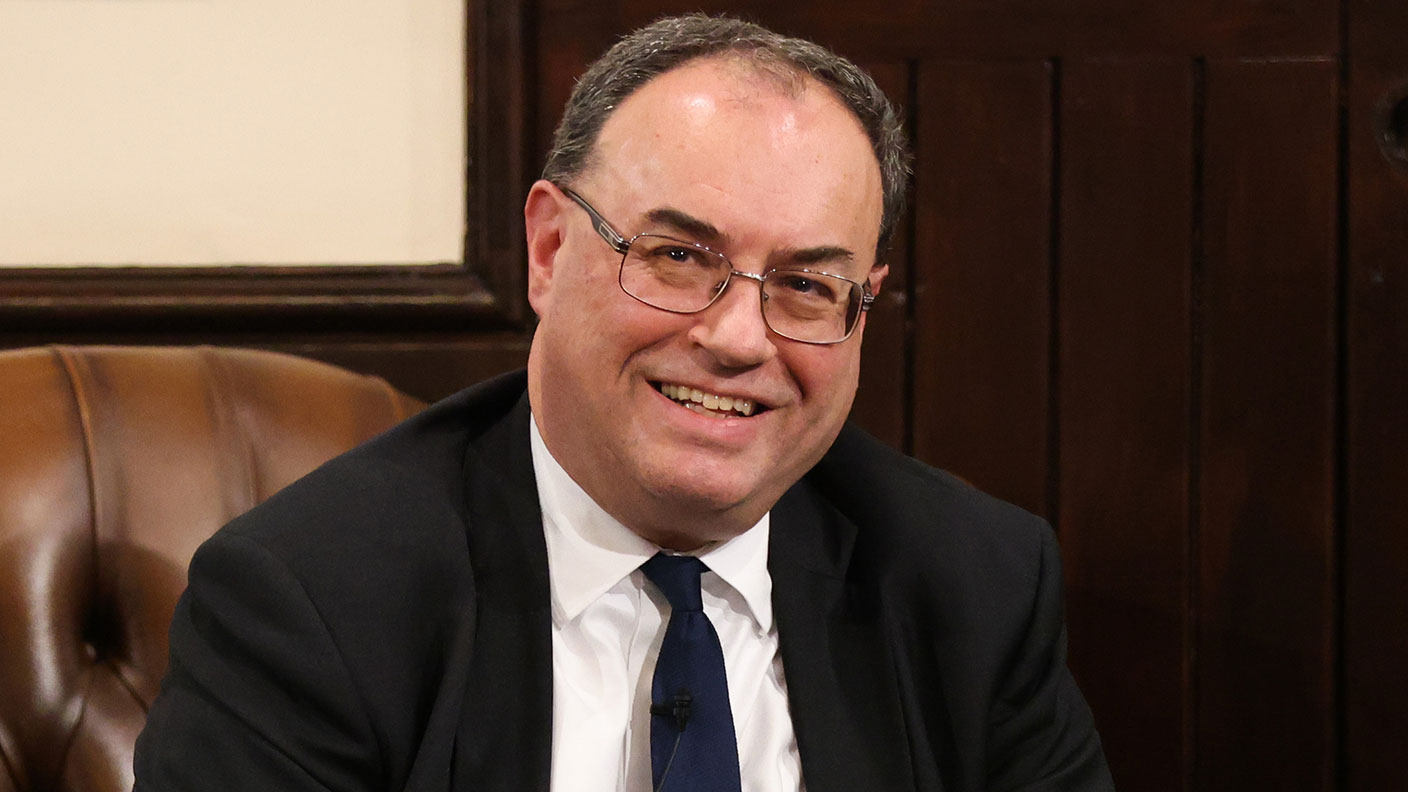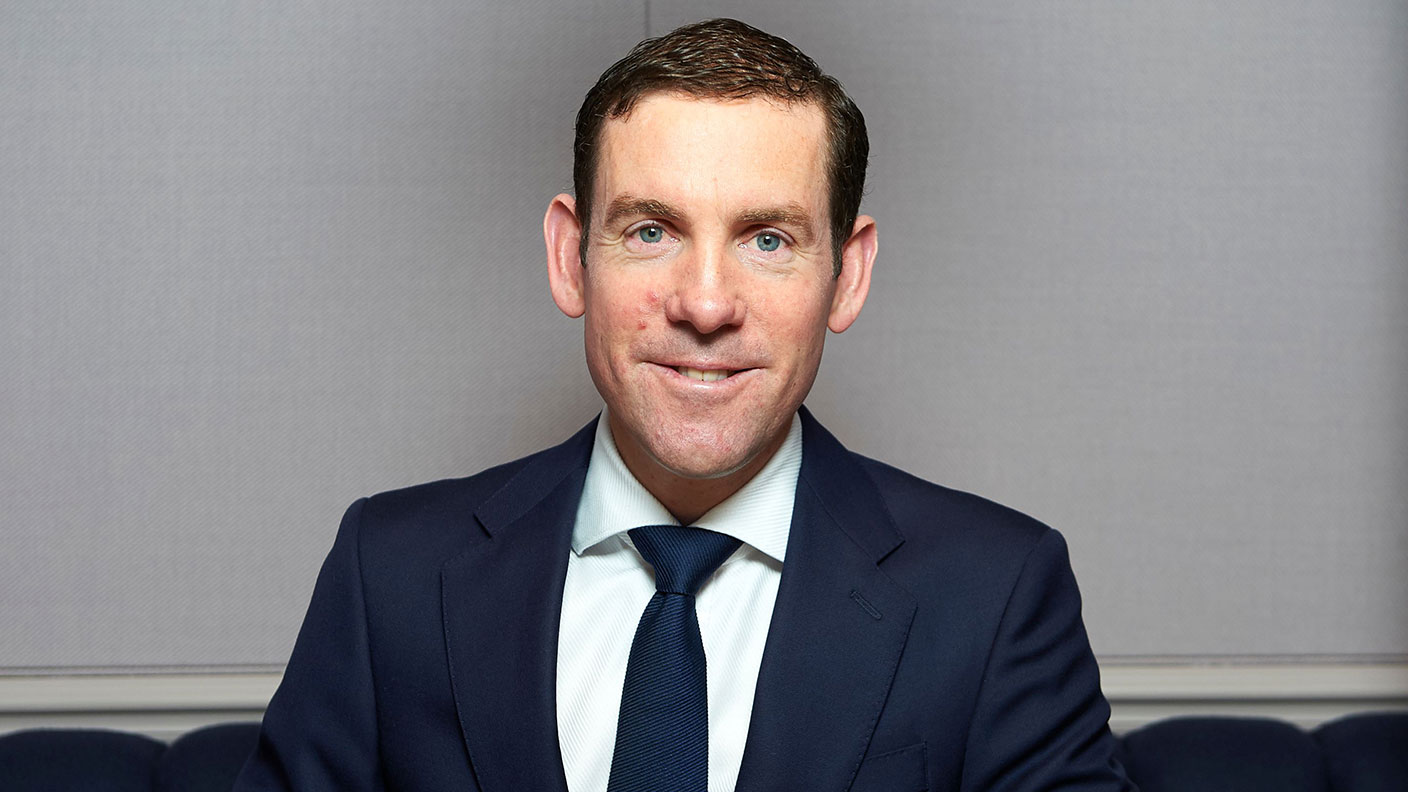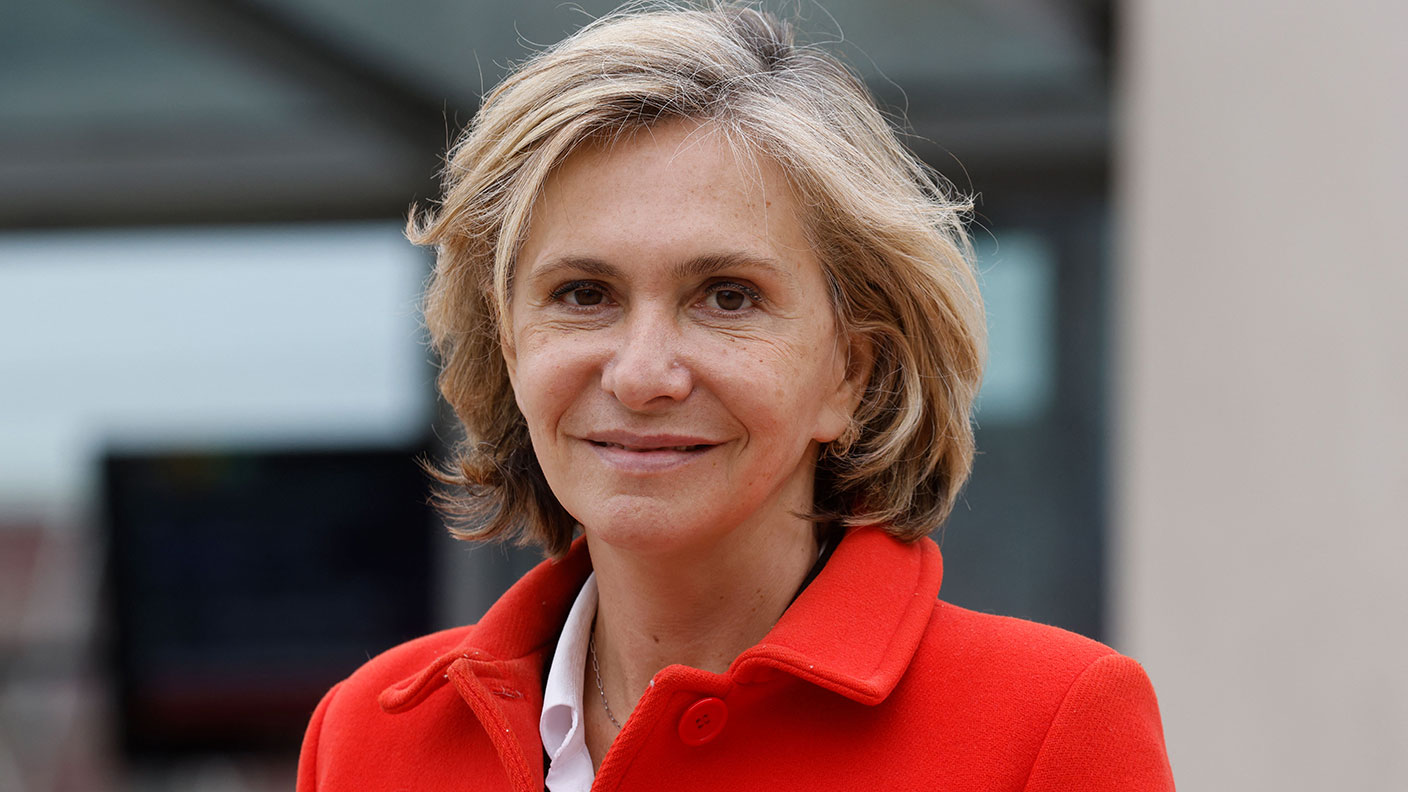The faces of 2021
It has been an especially turbulent year in politics, monetary policy and new stockmarket listings. Four key movers and shakers caught our eye
Get the latest financial news, insights and expert analysis from our award-winning MoneyWeek team, to help you understand what really matters when it comes to your finances.
You are now subscribed
Your newsletter sign-up was successful
Want to add more newsletters?

Twice daily
MoneyWeek
Get the latest financial news, insights and expert analysis from our award-winning MoneyWeek team, to help you understand what really matters when it comes to your finances.

Four times a week
Look After My Bills
Sign up to our free money-saving newsletter, filled with the latest news and expert advice to help you find the best tips and deals for managing your bills. Start saving today!

Andrew Bailey
The Governor of the Bank of England (BoE)was once referred to by his predecessor, Mark Carney, as “the big sexy turtle”: his “considered decision-making” was akin to the mating of Galapagos tortoises, says The Observer. Critics of the Bank’s policy on interest rates will appreciate the joke. “The BoE has spent months dithering” while inflation crept up, notes Alistair Osborne in The Times. Accused of “bottling it” in November after seemingly signalling a rise, this month he changed his mind.
Bailey was going to be damned if he did and damned if he didn’t. In the autumn, when it seemed that the BoE might lead the advance among major central banks, some accused him of foolishly moving out of lockstep with the US Fed. Bailey wasn’t the only central banker to argue that this year’s inflation spiral was “transitory”. But he conveyed bull-headed stubbornness – understandable, if not excusable, as he’d begun the year advising financial institutions to prepare for negative rates. Educated at Wyggeston grammar school in Leicester and Queen’s College, Cambridge, Bailey, 62, joined the BoE in 1985, rising to chief cashier, says the Financial Times. He switched to financial regulation in 2013, becoming CEO of the Financial Conduct Authority (FCA) in 2016. But his reputation was tarnished by a series of scandals, notably the collapse of Neil Woodford’s empire and the implosion of unregulated mini-bond provider London Capital & Finance. Perhaps the timing was “unlucky”, but the affairs led to criticism that the FCA was “asleep at the wheel and slow to take action”. There may be a sense of déjà vu about that.

Lex Greensill
A former colleague once described the Australian financier Lex Greensill as the type of salesman who “can sell sand to the Bedouin”. If so, his skills were certainly laid bare this year, says John Arlidge in the Evening Standard. The collapse of his supply-chain finance company Greensill Capital was a shock – not least because it involved former prime minister David Cameron as a well-paid “adviser” who had earlier lobbied the chancellor for hundreds of millions of pounds in loans. The Greensill affair helped unearth a series of shady dealings between ministers and the private sector.
MoneyWeek
Subscribe to MoneyWeek today and get your first six magazine issues absolutely FREE

Sign up to Money Morning
Don't miss the latest investment and personal finances news, market analysis, plus money-saving tips with our free twice-daily newsletter
Don't miss the latest investment and personal finances news, market analysis, plus money-saving tips with our free twice-daily newsletter
Greensill, 45, “inveigled himself into the highest echelons of the establishment”, but Whitehall was not the only casualty. He was equally adept at seducing banks and industrialists – including Sanjeev Gupta, boss of steel conglomerate GFG Alliance, who became Greensill’s largest debtor, says The Guardian. The Serious Fraud Office is examining the financing of Gupta’s metal empire and “its links with Greensill Capital”. It’s quite a trajectory for the son of a sugar-cane farmer from Queensland. Greensill came to the UK in 2001, put himself through business school and in his twenties worked at Citigroup and Morgan Stanley. There, a colleague and mentor was the late Jeremy Heywood, an ex-mandarin who returned to government, serving as cabinet secretary to David Cameron and Theresa May. After setting up his own business in 2011, Greensill became adviser to Cameron on supply-chain financing – a securities-driven update on traditional bank “factoring”. Such “revolutions in finance”, says the Financial Times, “have a nasty way of ending badly”.

Chamath Palihapitiya
“Spac pioneer” Chamath Palihapitiya boasted in February that he was set to grow his Social Capital investment empire into a 21st-century Berkshire Hathaway while generating “enough wealth to shrink the inequality gap in America”, says the Financial Times.
The grandiosity was nothing new for an anti-establishment self-advancer who once bragged about buying Goldman Sachs. But five days later, the IPOX Spac (special purpose acquisition company) index hit its all-time high, marking the peak of the Wall Street craze for “blank cheque” companies. Still, if anyone was responsible for pulling an estimated $325bn into Spacs since the start of 2020, it was Palihapitiya, says The Wall Street Journal. He belongs to “a new class of market influencers – social-media savants”, followed by amateur traders for investment hints “and for the insults he hurls at the high-finance elite”. No matter that his own preferred mode of transport is a private jet.
The child of Sri Lankan immigrants to Canada, Palihapitiya, 45, grew up poor in Ottawa. He spent four years at Facebook before founding Social Capital in 2011. In 2019 he floated Virgin Galactic with Richard Branson – setting the template for the “white-hot” market that followed, says the FT. But lately the “Spac King’s” magic touch has deserted him. Several deals have bombed with big losses, leaving Palihapitiya vulnerable to accusations of cynically exploiting his 1.5 million Twitter followers. Palihapitiya remains defiant. “My real long-term track record won’t be known for another decade or two.”

Valérie Pécresse
Could the rapid rise of Valérie Pécresse in 2021 really win her the Élysée Palace next spring? Her “task is tough”, says The Guardian. The first woman to run for the centre-right Republican party, Pécresse, 54, is known for fighting “difficult and epic election battles”. Her nickname is “the bulldozer”. But her party faces competition from a growing far-right opposition. And many Republican voters and politicians have already “jumped ship to Macron”.
Born Valérie Roux near Paris, Pécresse grew up in a family of “social Gaullist” intellectuals. Her father, an economist, told her women could do as well as men. After graduating from the elite ENA school, which produces France’s top civil servants, “she cut her teeth in government” as an adviser in Jacques Chirac’s administration before being elected an MP and regional councillor, says The Local. Subsequent stints as spokeswoman and budget minister during the Sarkozy presidency “brought her to national prominence”.
A Russian-speaking, self-described “Iron Lady”, Pécresse cites Margaret Thatcher as a great inspiration. But she aims to lead more like Angela Merkel, whose consensus-building skills she admires, says The Guardian. Her strong point against Macron, supporters say, is her “experience as a budget minister trained in finance”. Sarkozy says she is “obsessive” about the details of her dossiers. Often underestimated as a “blonde bourgeoise”, Pécresse knows her politics and economics well and has a solid record in government, says the Financial Times. Has Macron met his nemesis?
Get the latest financial news, insights and expert analysis from our award-winning MoneyWeek team, to help you understand what really matters when it comes to your finances.
Jane writes profiles for MoneyWeek and is city editor of The Week. A former British Society of Magazine Editors (BSME) editor of the year, she cut her teeth in journalism editing The Daily Telegraph’s Letters page and writing gossip for the London Evening Standard – while contributing to a kaleidoscopic range of business magazines including Personnel Today, Edge, Microscope, Computing, PC Business World, and Business & Finance.
-
 Early signs of the AI apocalypse?
Early signs of the AI apocalypse?Uncertainty is rife as investors question what the impact of AI will be.
-
 Reach for the stars to boost Britain's space industry
Reach for the stars to boost Britain's space industryopinion We can’t afford to neglect Britain's space industry. Unfortunately, the government is taking completely the wrong approach, says Matthew Lynn
-
 Ayatollah Ali Khamenei: Iran’s underestimated chief cleric
Ayatollah Ali Khamenei: Iran’s underestimated chief clericAyatollah Ali Khamenei is the Iranian regime’s great survivor portraying himself as a humble religious man while presiding over an international business empire
-
 Long live Dollyism! Why Dolly Parton is an example to us all
Long live Dollyism! Why Dolly Parton is an example to us allDolly Parton has a good brain for business and a talent for avoiding politics and navigating the culture wars. We could do worse than follow her example
-
 Michael Moritz: the richest Welshman to walk the Earth
Michael Moritz: the richest Welshman to walk the EarthMichael Moritz started out as a journalist before catching the eye of a Silicon Valley titan. He finds Donald Trump to be “an absurd buffoon”
-
 David Zaslav, Hollywood’s anti-hero dealmaker
David Zaslav, Hollywood’s anti-hero dealmakerWarner Bros’ boss David Zaslav is embroiled in a fight over the future of the studio that he took control of in 2022. There are many plot twists yet to come
-
 The rise and fall of Nicolás Maduro, Venezuela's ruthless dictator
The rise and fall of Nicolás Maduro, Venezuela's ruthless dictatorNicolás Maduro is known for getting what he wants out of any situation. That might be a challenge now
-
 The political economy of Clarkson’s Farm
The political economy of Clarkson’s FarmOpinion Clarkson’s Farm is an amusing TV show that proves to be an insightful portrayal of political and economic life, says Stuart Watkins
-
 The most influential people of 2025
The most influential people of 2025Here are the most influential people of 2025, from New York's mayor-elect Zohran Mamdani to Japan’s Iron Lady Sanae Takaichi
-
 Luana Lopes Lara: The ballerina who made a billion from prediction markets
Luana Lopes Lara: The ballerina who made a billion from prediction marketsLuana Lopes Lara trained at the Bolshoi, but hung up her ballet shoes when she had the idea of setting up a business in the prediction markets. That paid off